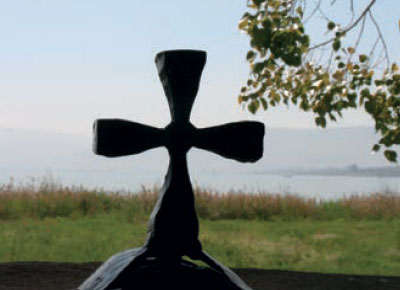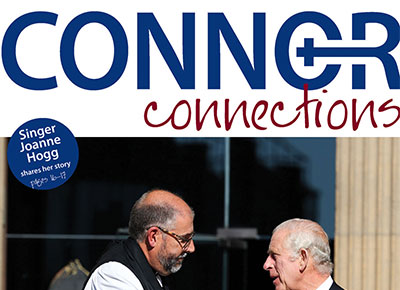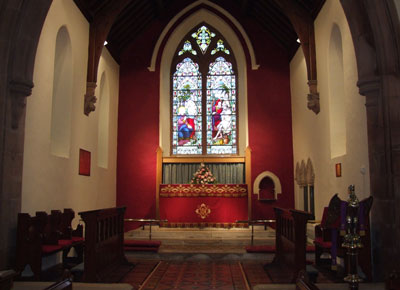Churches in Schools – events highlight opportunities to serve
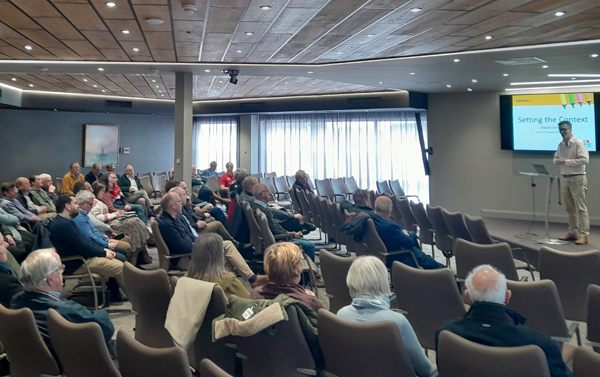
Participants at the Lisburn event.
A report on the recent ‘Churches in Schools: Preparing for Reconstitution’ events held in Lisburn, Coleraine and Enniskillen.
“The two constants in any community, no matter how small, are the local church and the local school,” Dr Andy Brown noted as he opened the first in a series of Preparing for Reconstitution events for clergy, school governors and church members held just after Easter.
The Transferor Representatives’ Council’s roadshow, in Lisburn, Coleraine and Enniskillen encouraged Church of Ireland, Presbyterian and Methodist congregations to choose good candidates for the role of governor, as the reconstitution of boards of governors approaches later this year.
Controlled schools have been well-served by the three Churches over the last century, following the transfer of most of their schools into state control. Whilst there is a clear missional opportunity and rights are enshrined in legislation to promote, maintain and defend our schools’ Christian ethos, TRC Chair Dr Brown reminded attendees that we are there to serve our schools and communities.
Setting the scene in a keynote address, Evangelical Alliance’s Northern Ireland Director David Smyth outlined some major trends that are shaping society and the opportunities to make a difference in the communities which churches and schools both serve.
“We are living in a moment where it is very hard to keep up with life,” David remarked. Three words can help to sum up a prevailing attitude in society:
- I – individualism
- Buy – consumerism
- Stuff – materialism
There’s a widespread desire to find fulfilment in possessions, such as a slightly better house or car, although a desire to put broken things right shows “a good and healthy yearning for justice and redemption.” The internet and social media have dramatically changed education and employment, and a sense of ‘perma-crisis’ confronts young people – who experience crises around identity, truth, trust and relationships as they try to find their way in a changing world.
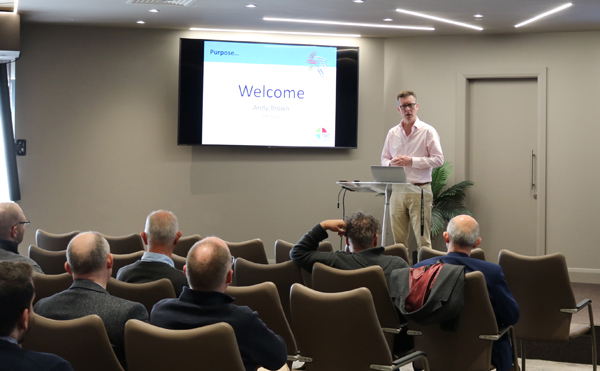
Dr Andy Brown welcomes attendees at the Lisburn event.
Wider society is forming our children and young people ‘in ways that we are only beginning to understand.’ Trust in civic institutions is lower, debates on a range of contentious issues continue, and budgets are under immense pressure in a region which has lacked political leadership in recent years.
Amid these challenges, teachers, principals and pupils are always ‘doing their best in the amazing schools that we have here.’
A significant proportion of Northern Ireland’s population still identifies as Christian – 79.7 per cent in the 2021 Census, compared with 46.2 per cent in England and Wales in the same year. Evangelical Alliance’s survey-based research report, Good News People, published in February, found that one in two people in Northern Ireland described themselves as practising Christians, and 57 per cent agreed or strongly agreed that faith should have a role in education.
For many people here, their lives are shaped by a very different story than what is told by secular culture – one which “provides redemption and forgiveness far beyond what is offered by the world around us.” Churches have great opportunities to shape the moral formation of young people, in its widest sense, advocating for what is true, good and beautiful.
At each event, a local principal shared some ways in which transferor governors strategically, practically and pastorally help their schools – with examples including:
- A supportive and sympathetic understanding of the complexity of the principal’s role.
- Being aware that schools pick up the consequences of problems that other public services in society are unable to deal with.
- A ‘joined up’ approach to service with other community partners.
- Training in health and safety, finance, and child protection.
- Looking around creatively for funding sources.
- Helping families to find help with living costs – groceries, fuel, and small, simple gifts.
- Pastoral and spiritual support with the principal and members of staff.
Governors can be the channel for random acts of kindness from your congregation – from end-of-term boxes of chocolates to remembering times when staff will feel under particular pressures, and asking about their well-being.
The principal, as the leader of the school, has a key role in relationships between churches and schools so it’s essential that he or she trusts their governors. And the best approach, Andy Brown related, is for churches to pull their sleeves up and ‘go in and give, and ask for nothing in return.’
To find out more about the TRC and how it connects churches and schools, please visit its website: trc-churcheducation.org
© Copyright The Church of Ireland Diocese of Connor 2026 | Web Design by LD2.digital
